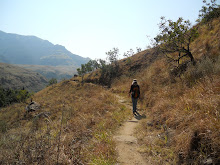This stood Jean Renoir in good stead when he worked with Rumer Godden in America and India, making a film of her novel
The River.** Early in the Second World War, he and his wife fled from France to America, via Morocco. Setting up in Beverley Hills and taking American citizenship, Jean Renoir made one successful film before falling out with the big studio, RKO, in mid-production of another. He didn’t mind that it cost him his reputation with the ‘film moguls’ – instead, he was ‘anxious to express sincerely in [his] work what [he] is …’; in reading
The River he realised he had discovered the ‘new style’ that would ‘fit with the new person [he] had become and the new life [he] had found’ (p 86). As Rumer Godden puts it:
Renoir believed passionately, as I do, that in cinema the only authenticity is truth so that he would not have a Bengali peasant, field worker or boatman singing or talking in English … Nowhere in the film of The River is there anything artificial that should be real, nowhere does anyone speak words they could not in real life have said, and with this reality I believe we achieved the quality we wanted, the timelessness of a spell that held the most discerning of the critics … (p 86)At the Renoir house in Los Angeles where Godden wrote the screenplay, prior to the filming in Calcutta, there was also Gabrielle, Godden notes, the ‘dark girl of so many of Auguste Renoir’s paintings’ (p 106). Godden sees her as having been father Renoir’s ‘favourite model’, as son Renoir told the writer: ‘She would be starting the cooking of lunch … when there would be a bellow from my father, “Gabrielle, Gabrielle.” He had thrown out his model and Gabrielle had to leave her omelette or whatever she was cooking and take off her clothes’ (pp 106–7).
Michaels mentions this too. In her poem, Renoir compares the past and the present: ‘Those days’, when Renoir was young and experiencing a loneliness of the Impressionist process – that is, of ‘letting the world wash over you’ – ‘those days, everyone looked away’ (p 103). By contrast, ‘now’, when Renoir is much older, damaged by arthritis, ‘women look [him] in the eye when [he] takes their clothes off’ – ‘a fine son of a tailor,’ he admits wryly, ‘painting nudes!’ (p 103).




